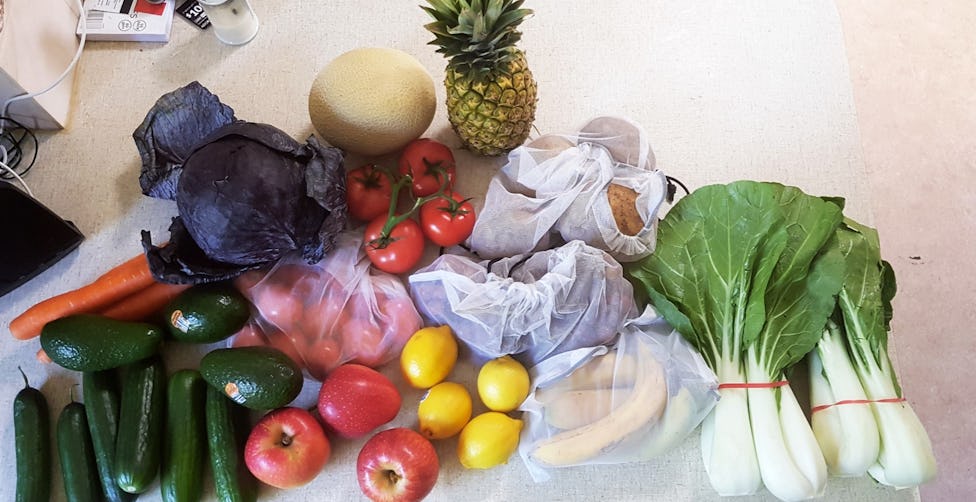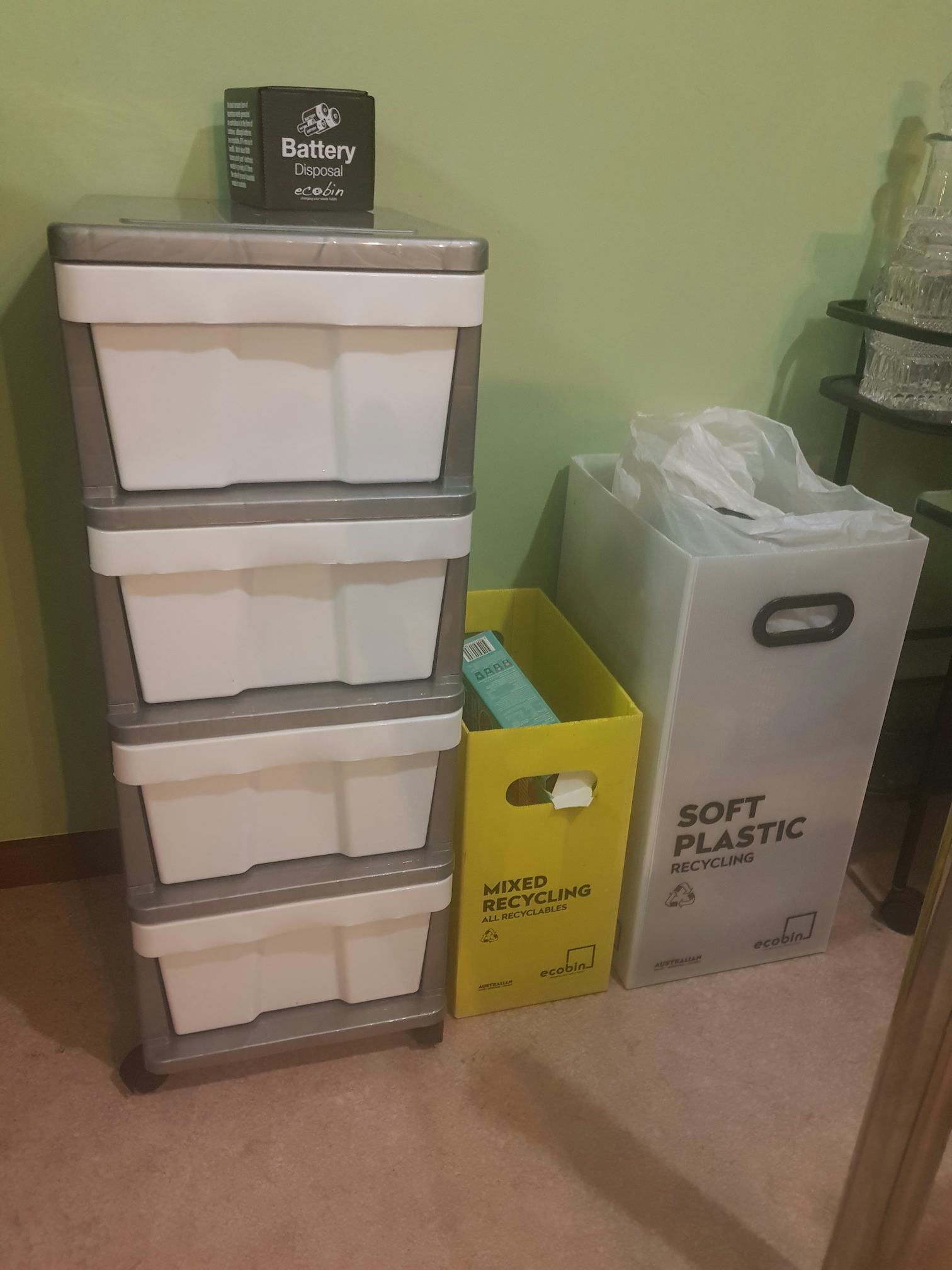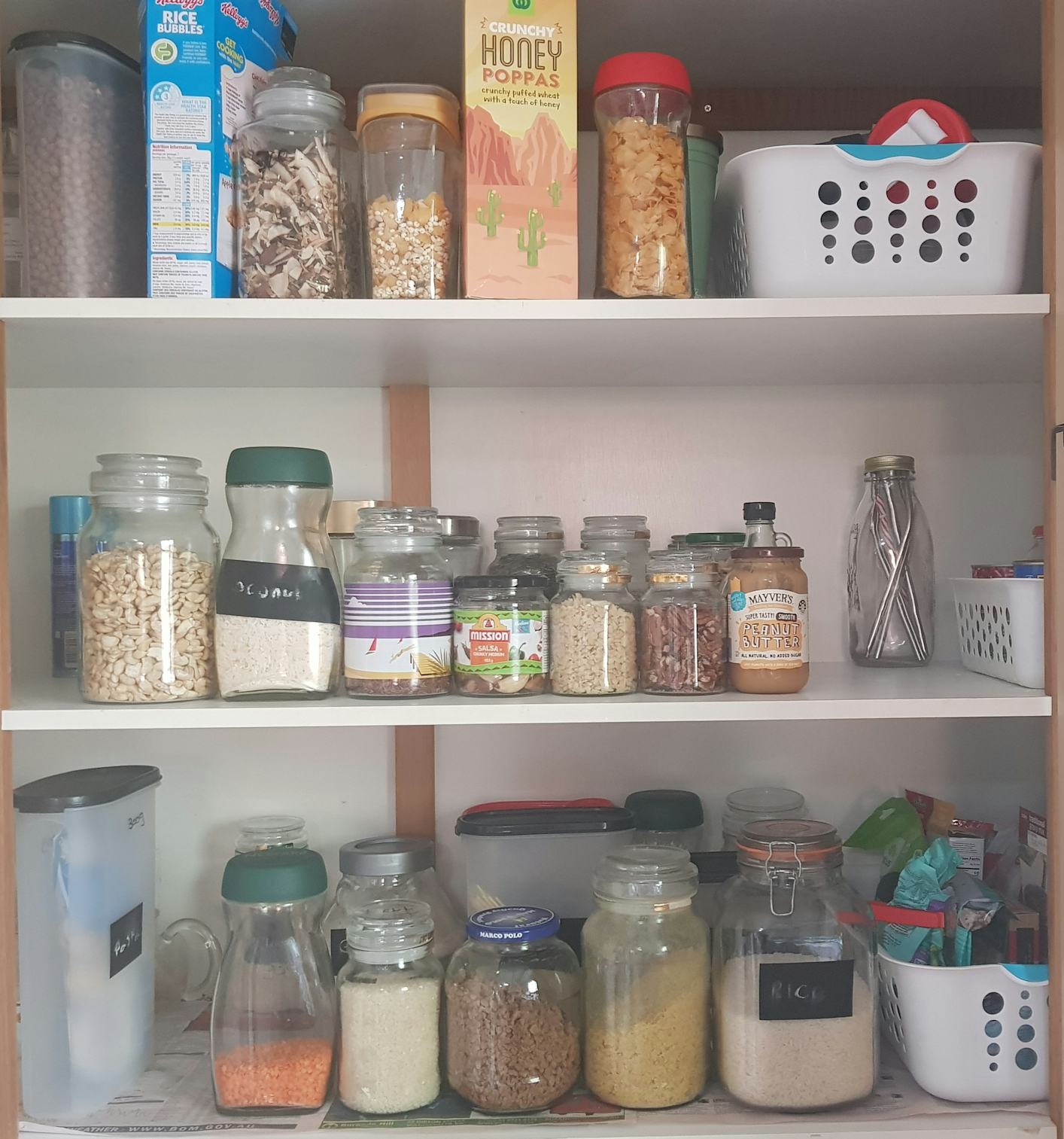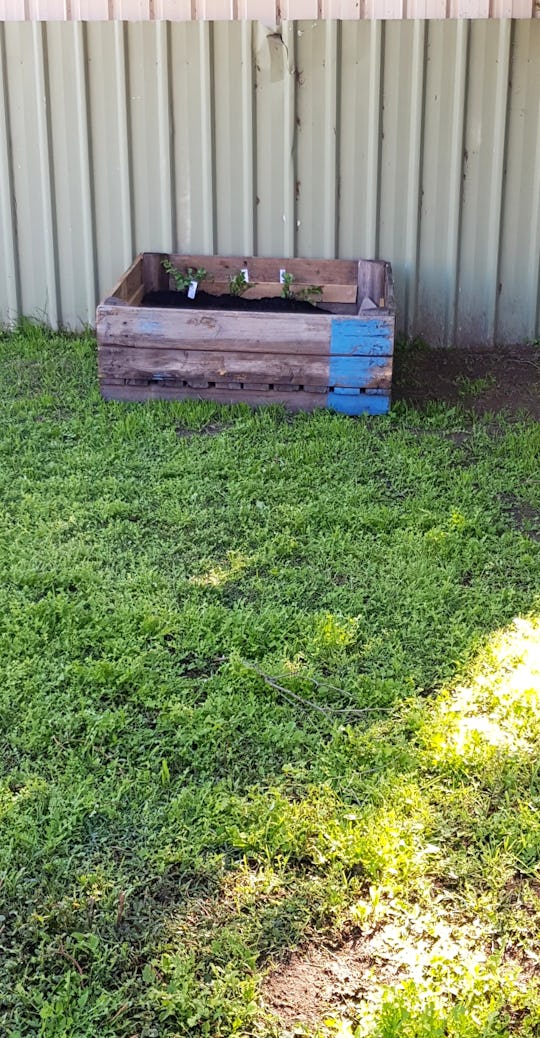This year has thrown some curveballs our way, but it has also required us to pause, think about what we want our future to look like and reset accordingly. For National Recycling Week this year we are looking ahead to our Future Beyond the Bin, where materials remain in circulation and what was once seen as waste is understood as resource. To that end, we are asking Australians from all walks of life to share their inspiring stories of how they #gobeyondthebin at work, home, school and in the community.
It has been over two years since the Fernando family took out their rubbish bin. "Our general waste bin hasn’t been out since June 2018," Asanki Fernando recalls. "The recycling bin goes out once every 8-10 weeks and green waste (FOGO) bin goes out weekly," she adds. That extremely impressive for a family of seven — mum, dad, 8-year-old, three cats and one dog.
For the Fernando family, rubbish has become a dirty word. "I refuse to call anything rubbish anymore because anything can be repurposed or recycled," Asanki explains. "Anything that comes to our house is definitely [seen as] a resource because by calling things rubbish, we’re mindlessly sending things to landfill that can actually be repurposed or recycled."
This might seem like a fairly simple shift in thinking, but it represents a whole suite of new habits that the family have introduced to help reduce their impact on the planet.
Where the Fernando family's waste journey started:
"Back in 2017, I started hearing more and more about climate change. This made me want to start doing everything I could as an individual and as a household to combat climate change. When I started doing research on climate change, I learned more about methane and landfills. The concept that we actually sent waste mindlessly to landfill where it would be buried and not break down for 100-plus years shocked me and I decided we all need to work towards being more zero-waste."
What the Fernando family does to reduce waste:
“Our household follows the rule that unless something can either be composted, repurposed or recycled, we don’t purchase the item. For ex ample, most councils in Australia struggle to recycle black plastic containers, as most recyclers refuse to accept black plastic, so we don’t buy any items that come in black plastic.
We have a mini-bin system inside our house: comingle recycling, soft plastics, bottle caps, cans and bottles for the Return and Earn program, small kitchen caddy for food scraps and other items such as batteries and e-waste that get collected and dropped off separately.
Pens, markers, etcetera get collected and sent to TerraCycle. All clean empty cosmetic containers and toothpaste tubes are also sent to TerraCycle. E-waste, paint and polystyrene get collected and dropped off at our local council transfer station. Old clothes that can’t be donated get dropped off at H&M.
We plan our meals weekly and shop accordingly which helps reduce buying items which would potentially go to waste. We cook in bulk and freeze certain meals which again reduces waste.
We always use the Recycling Near You to find out where and how to dispose of tricky, hard to recycle items which we are unsure of and it has been a great help.”


How the Fernando family’s goes #beyondthebin:
“We do most of our shopping at farmers markets and our local bulk food store. We make most of our snacks and dips at home [which] reduces plastic waste, saves money and is healthier. If you don’t have access to a bulk food store, I suggest buying in larger quantities so that you save on individual packaging and it is also more cost-effective to buy in bulk.
With herbs, what I realised when I was buying things was that a lot of herbs come wrapped in plastic. So, what we’ve done is we grow most of our herbs and greens so we reduce what we buy that comes wrapped in plastic.
We reuse our Moccona coffee jars all the time. We use these for bulk food shopping and also for storage in the pantry. All old glass jars have either been given to friends and family, dropped off at our bulk food store or given away free on Facebook marketplace to be reused instead of being recycled. We also reuse empty vego spread glass containers as drinking glasses.”


The Fernando family’s top tips for other households wanting to reduce their waste:
“Start small. Grow your own herbs and vegetables if you can (some vegetables take very little space) this will save money and also reduce plastic waste. Use a reusable water bottle, coffee cup and carry your own reusable bag and cutlery. Also try to purchase items made from recycled material as much as possible so we can contribute to a circular economy. There is no point of recycling unless there is a market for products made from recycled material. Toilet paper made from recycled paper is a good example of how you can buy products made from recycled material.
Food waste is a huge issue, plan your meals for the week to reduce waste. If you can’t compost at home or don’t have a FOGO bin provided go to the ShareWaste app where you can find locals in your area who are composting and would be happy to take on your scraps for composting.
Recycling should be used as the last resort. Refuse, reduce and reuse as much as you can before choosing to recycle. Most products, even if they are made out of paper, take lots of resources to produce. So instead of choosing to use single-use eco-friendly paper bags etcetera it is always better to choose reusable options where possible.”
National Recycling Week takes place from November 9-13. For more information and to find out how you can get involved, head here.